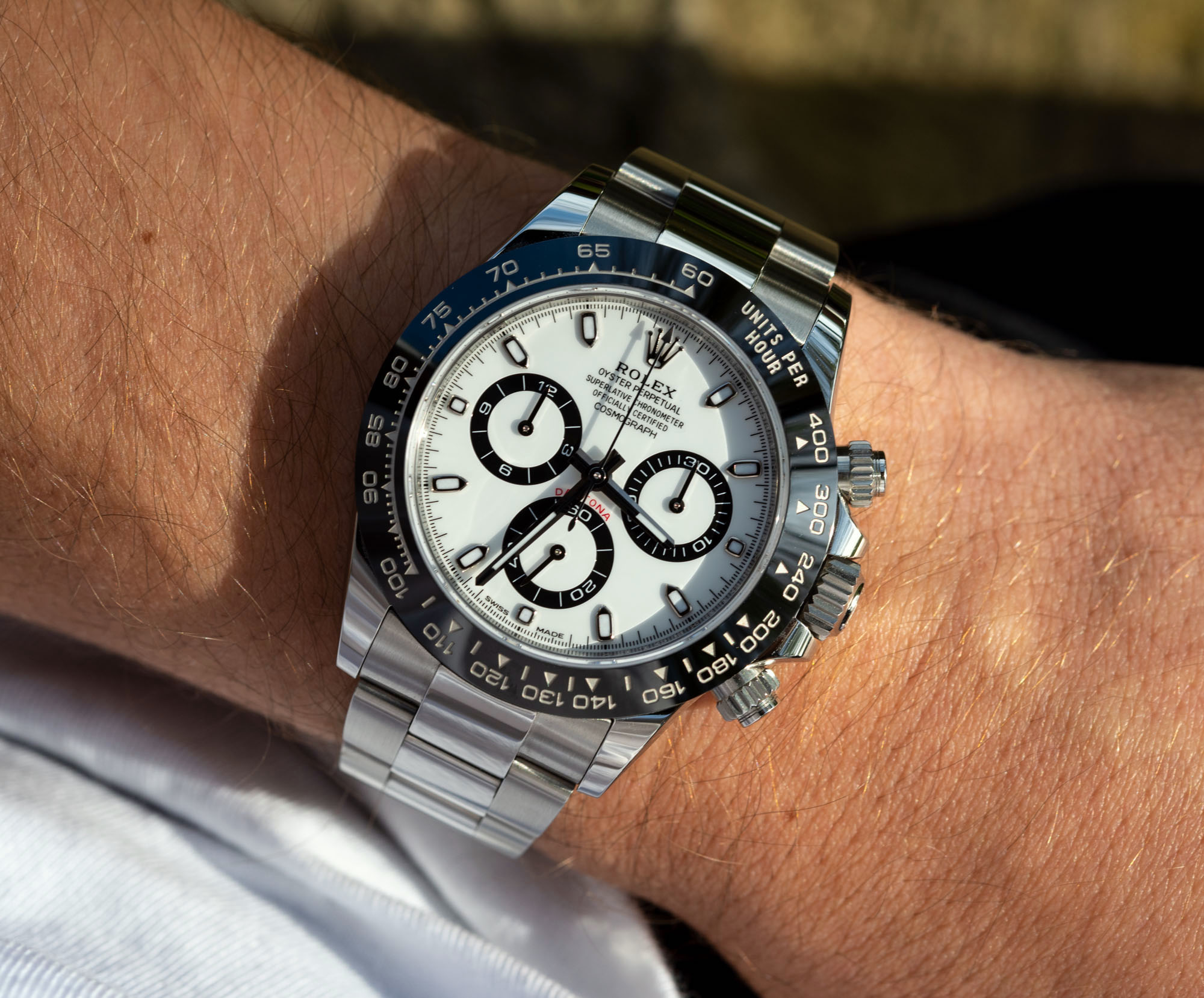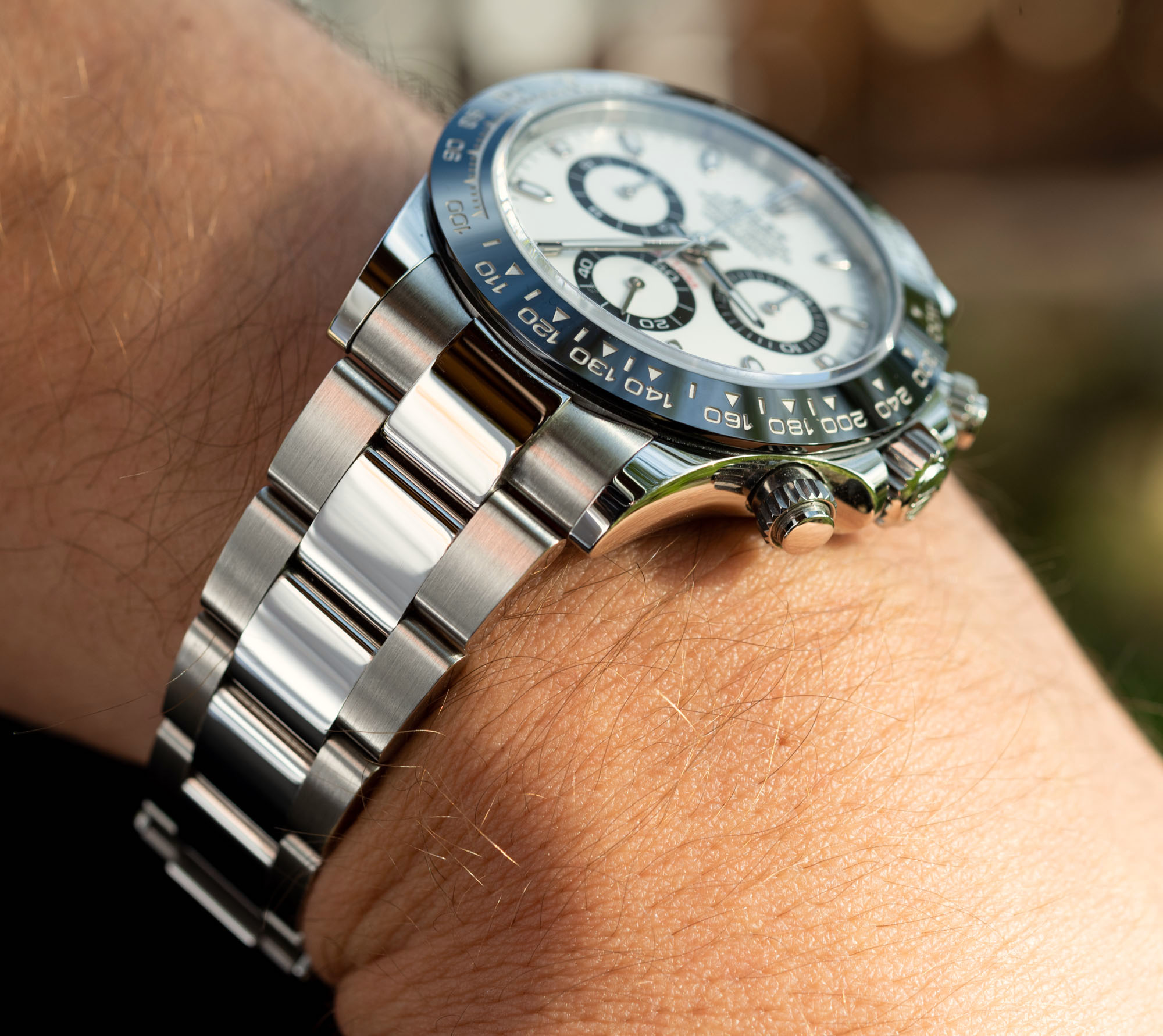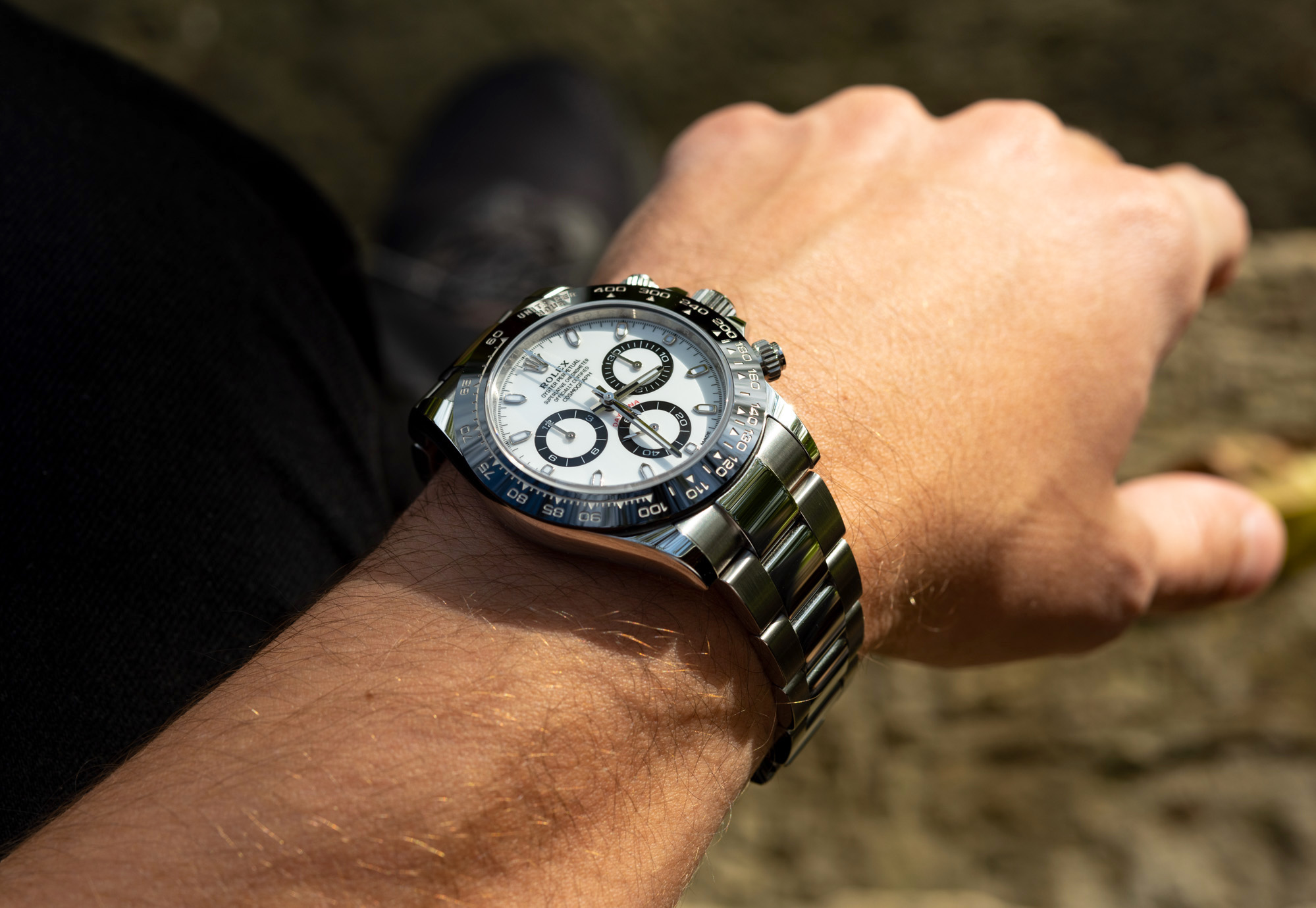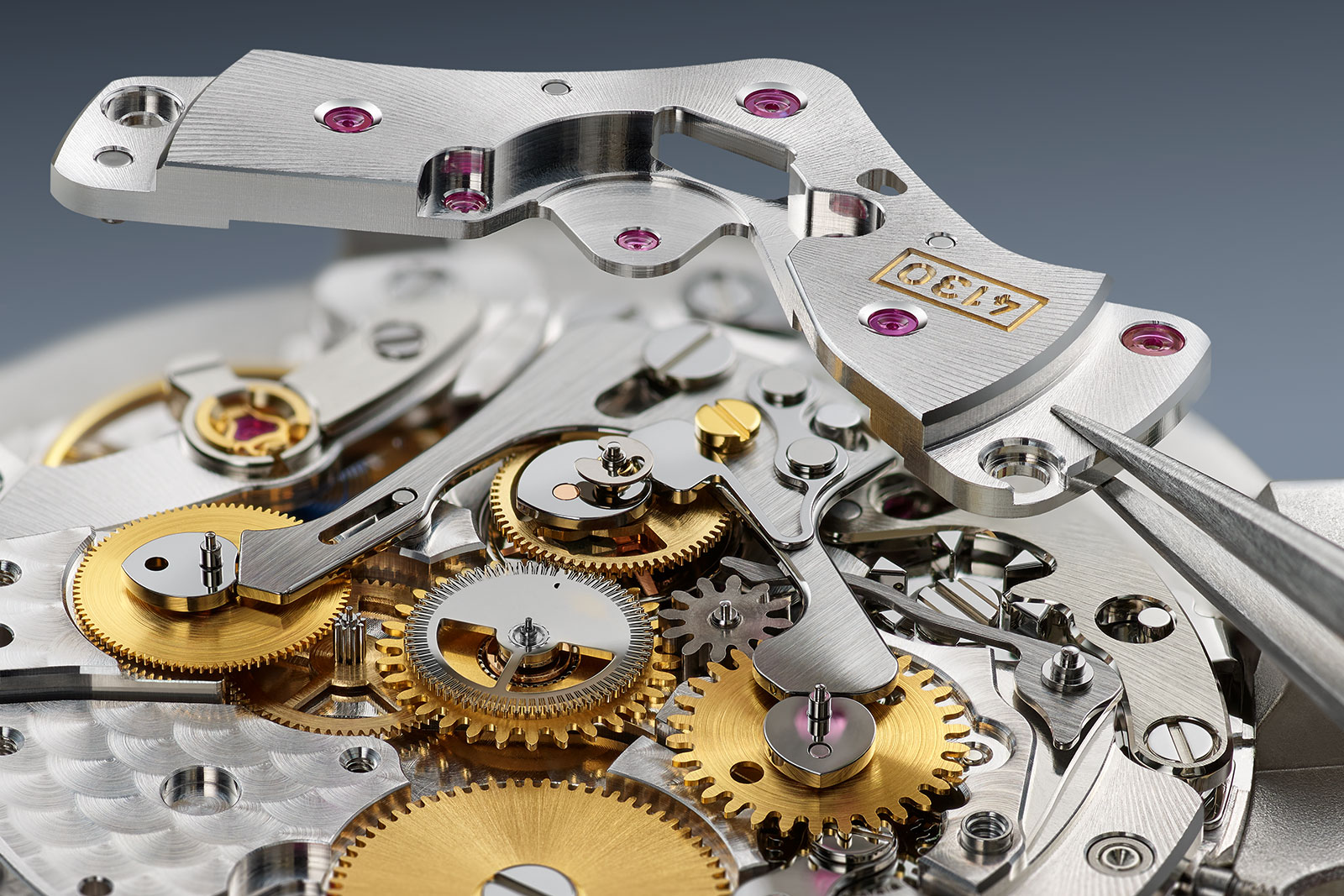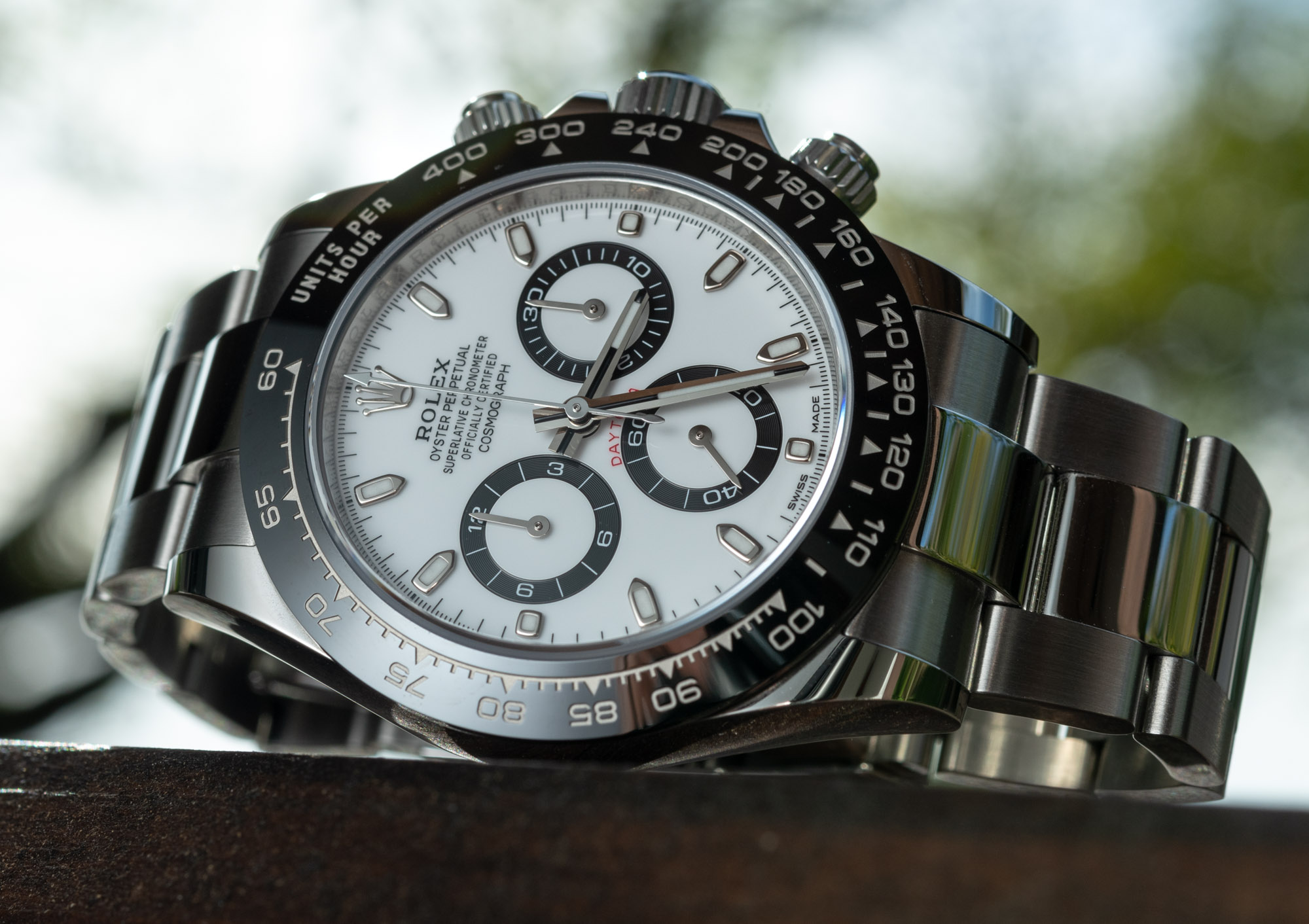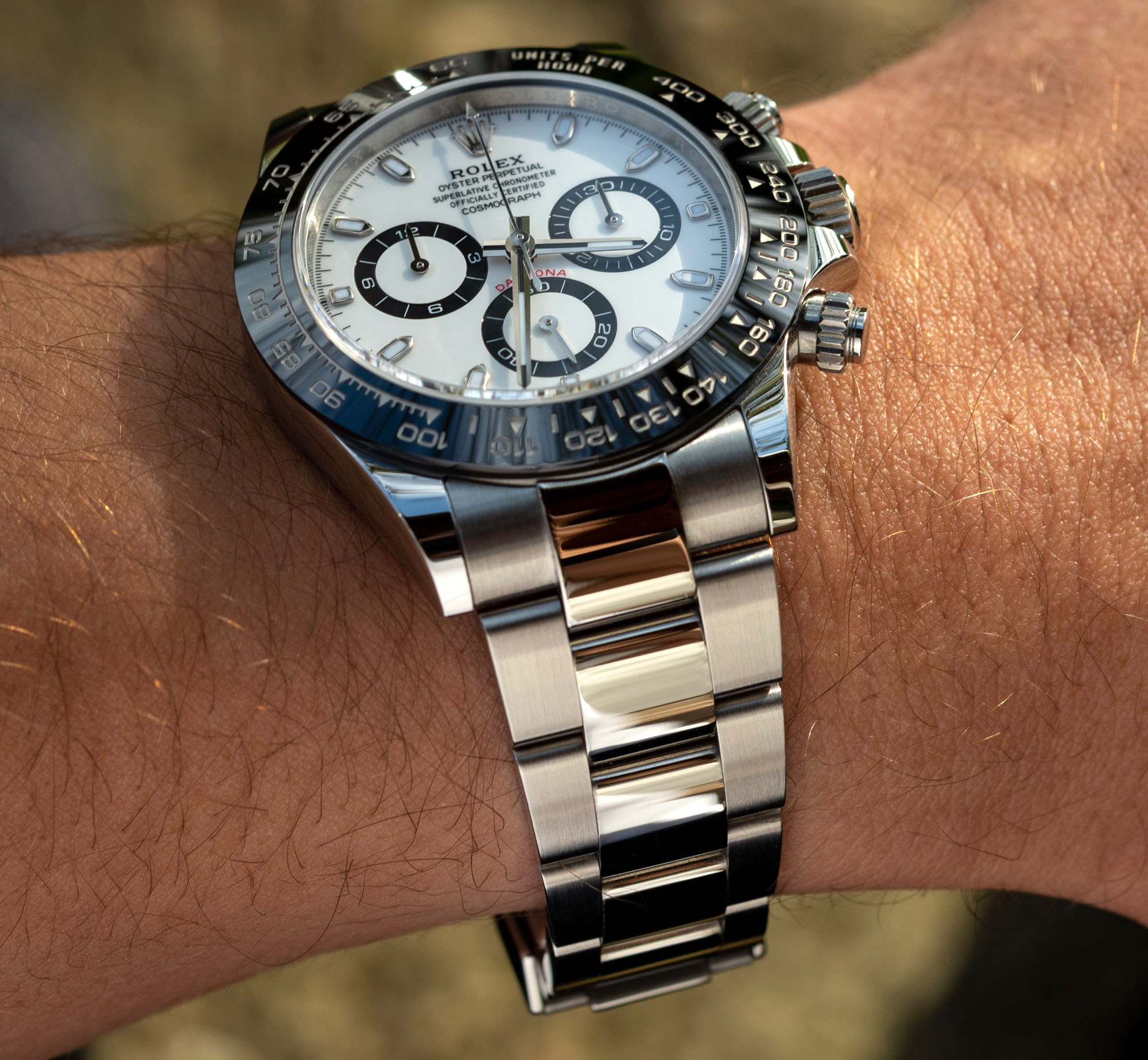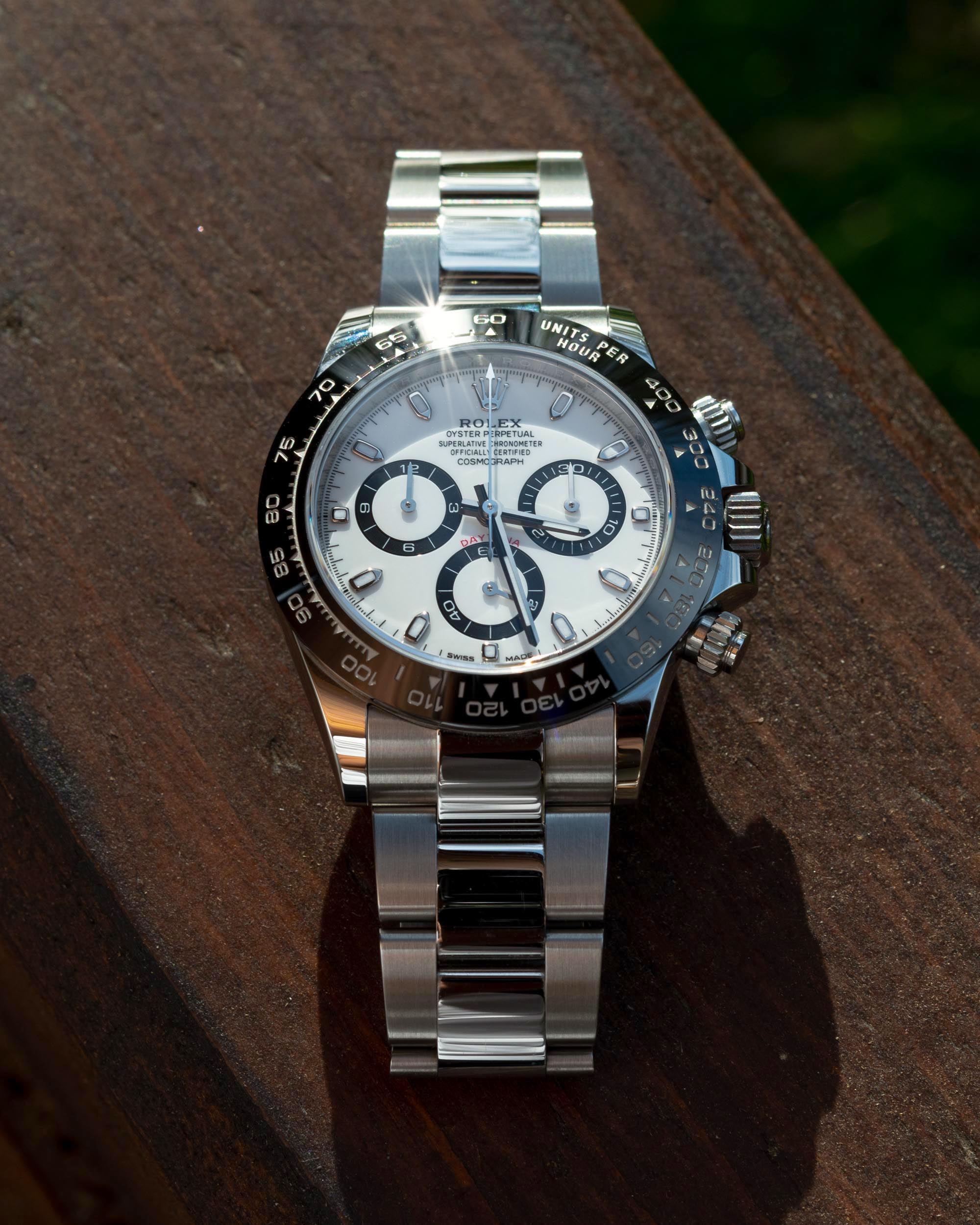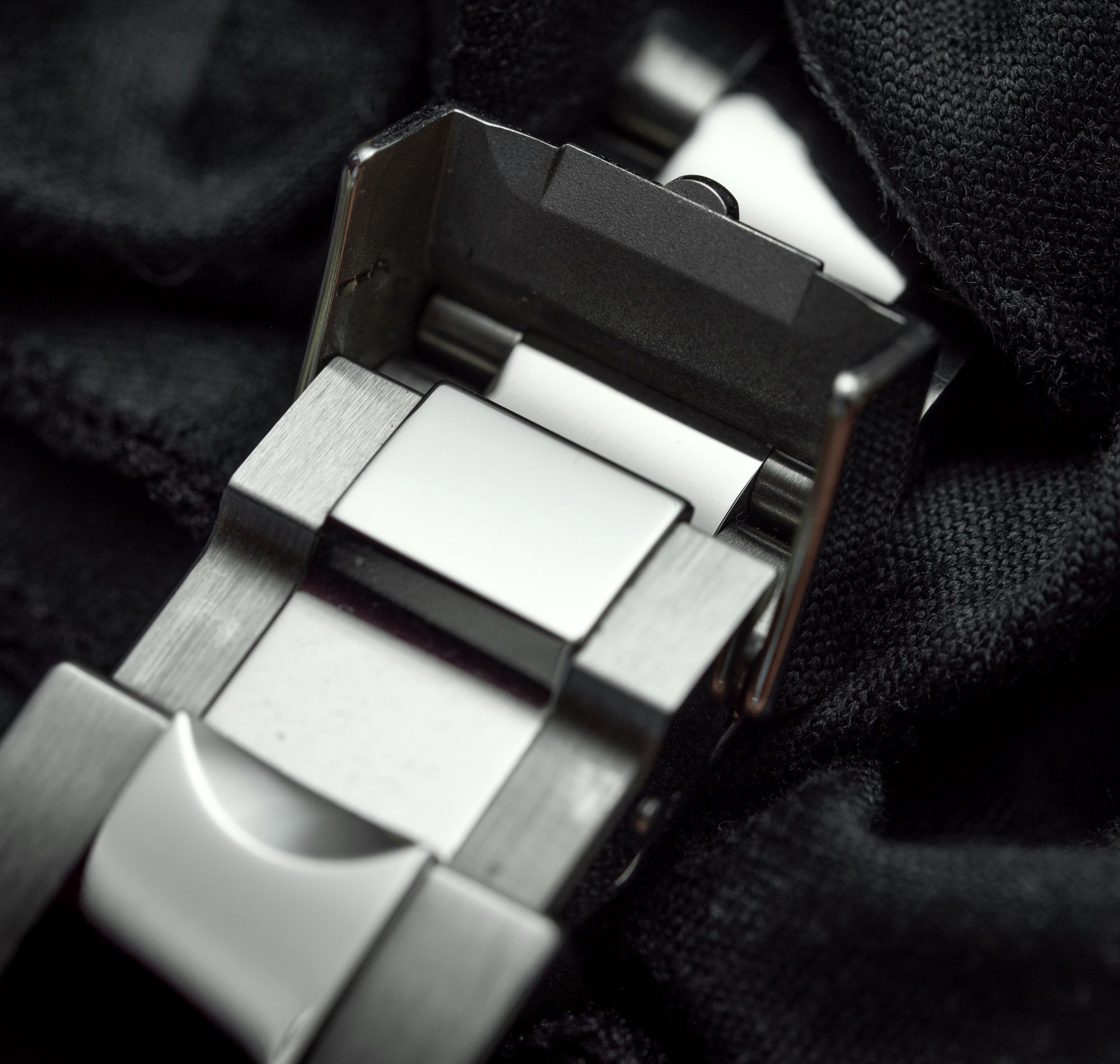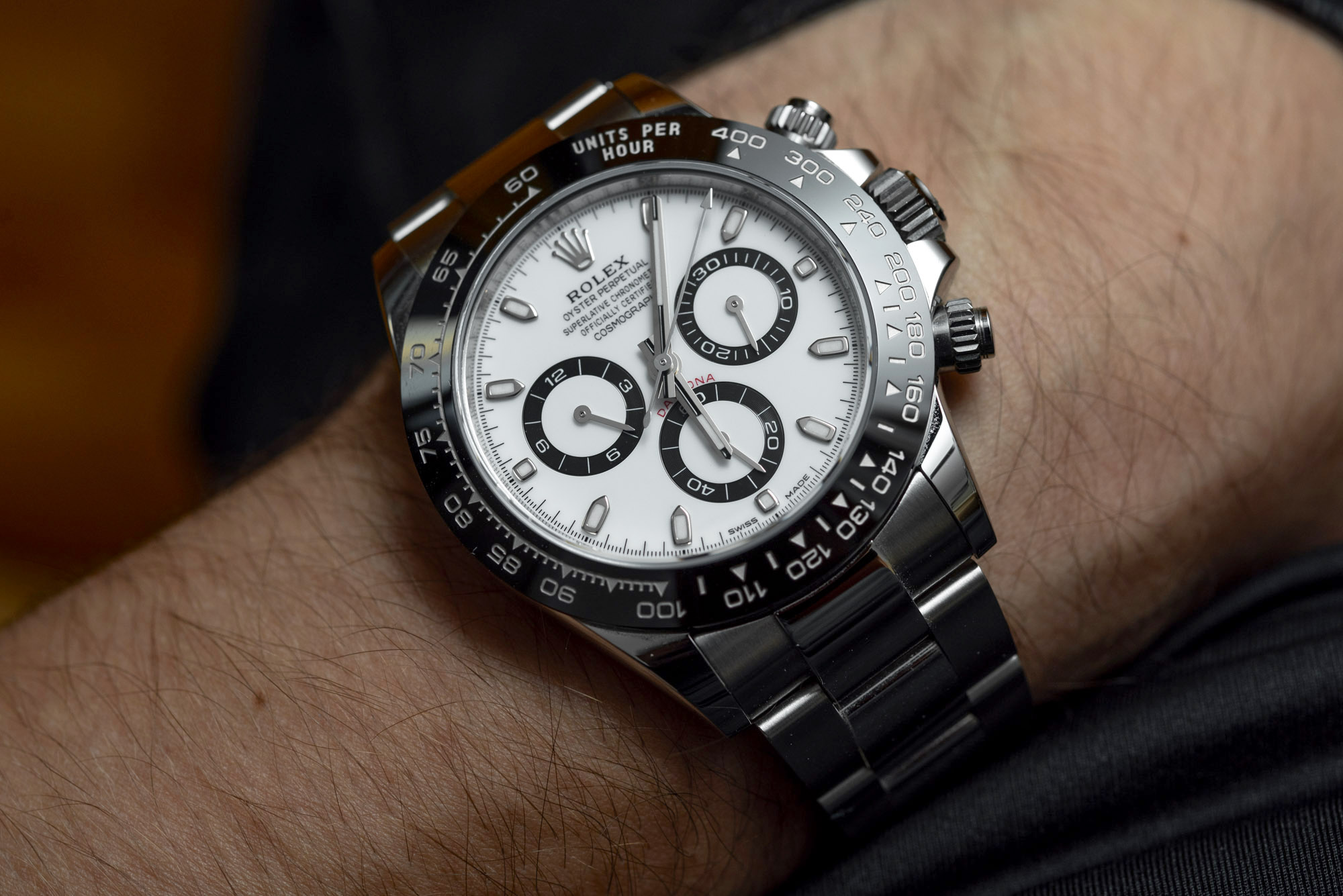Five Ways The Rolex Daytona Is A Better (And Worse) Watch Than You Might Expect
We have extensively covered the scarcity of certain watches, the Rolex Daytona included, here on aBlogtoWatch. Today, we’ll talk about the lesser-known nuances of one of the key suspects, the watch itself that lies behind all that madness. The rare opportunity presented itself for me to spend a fair bit of time wearing the highly desirable, widely recognized yet seldom fully experienced Rolex Daytona 116500LN with an affectionately nicknamed “Panda” dial. Here are five ways the Rolex Daytona watch is a better (and worse) watch than you might expect.
Better: Wearing Comfort
The Rolex Daytona is more comfortable than the majority of other steel-bracelet chronograph watches out there. It’s not yet perfect — stay tuned to learn how it could do better in the “worse” segments below — but it does not require perfection to outperform almost all the other steel chronographs. How so? First, the bar isn’t set very high by the majority of steel chronographs, to begin with; they can be heavy, thick, and ungainly, often offered on generic straps or bracelets not designed to handle the watches’ bulk. The Rolex Daytona is one of the thinnest self-winding chronograph watches in production today. At just 12mm-thick, it’s thinner than most dive watches (the Rolex Submariner is 13mm thick), let alone chronographs. This aids comfort in all sorts of ways: The low profile helps minimize wobble, keeps the watch from getting caught on sleeves and obstacles all the time, and, as a bonus, it adds a noticeably more refined aesthetic, too. Second, the 116500LN has a three-link Oyster bracelet with just the right width, weight, and integration to support the watch head comfortably. Third, neither the bracelet nor the clasp has any sharp edges anywhere — not even the underside of the lugs.
Better: Legibility — But Only On The Panda Dial
Once given some thought, perhaps it’s understandable that a dial variation can make or break the legibility of any watch. The Panda dial version of the steel Rolex Daytona 1165000LN has a white background with black text and black subdial surrounds, serving as the ideal backdrop not just for the litany of Rolex-boasting, but also for the reflective hands crafted from 18k white gold. The hands and hour markers are crafted from 18k gold on every Rolex watch made today, even on steel models. On the black-dial version (whose exact reference is 116500LN-0002), the shiny hands and their black and white filling appear perfectly camouflaged over the glossy black dial and its white text and dial furniture. The black dial version looks ace in real life, perfectly matching the level of confidence a watch of such high desirability should exhibit — but its legibility is terribly compromised. By contrast, the Panda dial does not divert much attention away from the perfectly sized hands and pointy hour markers and really makes the reflective gold hands perform to design, making them easier to locate and read under virtually any lighting condition.
Better: Rocking The Best Movement Rolex Has Ever Made
Rolex gets plenty of (hard-earned) credit for the reliability and virtual indestructibility of its movements, and the fact that all its watches produced today are fitted with movements manufactured, assembled, and tested almost entirely in-house. The Rolex Caliber 4130 stands out with such nuanced engineering details that a proper discussion would go far beyond the scope of this article. In a nutshell, even 22 years after its debut, the Rolex 4130 still outperforms other movements in its field because it’s so much less complicated than others: The 4130 is composed of just 201 separate parts. It’s extremely rare for Rolex to boast about the number of parts in its movements (good luck finding this figure for any of the brand’s other movements). It’s a movement that is incredibly precise, robust, thin, and refined in its operation. And to achieve all that in an automatic chronograph remains one of the greatest challenges in modern watchmaking. If you are longing to learn more, or are not yet convinced, visit this fantastic look inside the Rolex 4130 movement by SJX.
Better: The Rolex Daytona Is Deservedly The Real Thing In The Eye Of Many
Sometimes there’s just one thing more annoying than hype — hype that’s deserved. Many superb chronograph watches have come and gone since the renaissance of luxury watchmaking began in the 1980s (with the Grand Seiko SBGC001 giving the Daytona a run for its money), but the emphasis in this instance should be on the word “gone.” Sure, famed model names and core aesthetic codes might have stuck around from many of those revered collections, but the watches around them have often changed massively in size, proportion, status, and positioning. Nevertheless, every once in a while, a company gets to operate in the long run at the helm of people so risk-averse respectful of tradition that its products get to exist virtually unchanged and unmolested not just for years, but decades, and this gives said company an advantage impossible to quickly imitate. The Rolex Daytona has looked largely unchanged since 1988 — that’s 34 years, and counting. During that time, its design got wired into the public’s collective mind in all sorts of ways, associated with great achievements (at various motor races or in one’s personal life), high-profile events like Formula 1®, and all the rest of it… But that’s not what makes the Daytona special on an ordinary Tuesday morning. Over the time it’s spent under the providence of Rolex, every small and large detail has slowly come together into a singular whole that gives off a sense of status, timelessness, and a sensation of it being “the real thing.” That’s what 34 years of repetition can do. And that’s true whether one likes the watch, or not.
Better: It Feels Precious, Yet Indestructible
Well, indestructible with some caveats, as we’ll see just below. Nevertheless, it is true: Even non-watch-savvy folks I have handed this watch to could tell that it was built differently. It isn’t down to just any one single element — the 904L steel, the extremely tight and consistent fit of bracelet links, the case that feels like it’s done many more compression and heat cycles (the only cases that feel comparable are some of Breitling’s, which also go through more cycles, resulting in a heavier, denser feel). Instead, it’s a culmination of all these efforts that makes the Daytona feel noticeably and considerably more robust than the majority of other luxury chronographs. Given the high levels of consistency between its various brightly polished surfaces and the deep sheen attained, the Rolex Daytona dances on the verge of being glitzy and flashy — it certainly already is, for some — without turning into a “polished potato” like many Panerais and Breitlings are.
Worse: The Rolex Daytona Needs A Titanium Alternative
In the second installment of my weekly column, “Grinding Gears,” I explain at great length all the potential issues with steel as a material for sports watches and especially luxury sports watches. All of that also applies to the Rolex Daytona, so instead of repeating what’s been said there, I’ll add that Rolex owes itself, and the Daytona, the addition of a titanium or carbon fiber alternative. Rolex often and loudly prides itself for its engineering prowess and “perpetual quest for excellence” — and, no doubt, it certainly has managed to push its engineers, watchmakers, and, ultimately, its products, further in some ways than any of its competitors. That said, the Rolex Daytona has existed for over a half-century in steel, and in that time, the watch industry has successfully designed, prototyped, and implemented titanium and carbon fiber into some of its products. How long can Rolex lean on its perpetual quest for excellence as a reason for not stepping things up to the next level? Last, for a watch designed for motorsports — where every gram counts, so everything is crafted from carbon fiber, titanium, or aluminum — a cumbersome steel watch looks and feels out of place.

The trophy and Rolex Daytona 116500LN presented to the winner of the 24H of Le Mans. Source: Rolex official newsroom
Worse: Contrived Connection With Actual Motorsports
On the official product page of the 116500, Rolex explains: “Drivers can accurately map out their track times and tactics without fail [with the Daytona’s chronograph functions].” This might have been a real-use scenario of a Rolex Daytona watch in 1965, but it’s hard to guess how much the wheels of time would have to be turned back before we ended up at the last instance anyone used this luxury watch to map out their lap times and tactics at a racetrack, let alone inside a racecar. Regulations in many fields of serious motorsports have prohibited drivers from wearing jewelry while racing since these metal objects can cause severe burns in case of a fire, mitigating the safety of the fireproof racing apparel. Richard Mille watches with non-metallic cases and straps have long been worn in cockpits, even by Formula 1® drivers, but Rolex does not have a suitable product and is not known for frequently signing active drivers into its Rolex Testimonee brand ambassador program. As it stands, the Daytona can signify one’s passion for motorsport, but either the product or the way it is described needs to be updated soon because it’s contrived, at best, and dishonest, at worst.
Worse: The Rolex Daytona Is Recognized By Many, Truly Known By Few
It would be fascinating, and probably shocking, to learn how many people are out with a Rolex Daytona not knowing how its tachymeter scale works, or even what the little subdials are for. It is not a question of condescension but practicality in the sense that, yes, the Daytona has become a symbol of a great many things beyond the indicator of one’s true appreciation for watches and watchmaking. You won’t ever see the aforementioned Grand Seiko Spring Drive Chronograph GMT on anyone but a hardcore watch enthusiast, which is to say that the $10,000-$15,000 retail segment (not to mention the Daytona’s real-world value of $35,000) has dozens, if not hundreds, of amazing chronograph models to choose from if you have the desire to communicate your deep passion for watches. The Daytona does not immediately say that about its wearer — not until they start talking about the fabrication of metallic stand-alone parts without the idea of replication by injection molding through a derivative process of LIGA, as found inside the Daytona’s Caliber 4130. And it’s only when discussing this point that you realize, watch enthusiasts often overlook the Daytona simply because it’s right in front of them too much of the time — but this does not take away anything from its outstanding engineering prowess.
Worse: Shows Signs Of Wear Too Easily
Again, to quote Rolex: “Oystersteel is extremely resistant, offers an exceptional finish once polished, and maintains its beauty even in the harshest environments.” It remains true that the Rolex Daytona feels like it’s built to be indestructible — and it probably is — but that is not to say it won’t develop scars on its way to survival. In fact, the case and especially the bracelet are crafted and finished in a way that is highly sensitive and vulnerable to everyday objects of the real world — and even to itself. A prime example is how the upper latch of the clasp damages the bracelet in virtually no time at all. The Oysterlock bracelet is named as such because it has an additional clasp that folds over the main part to prevent accidental opening. While every moving part in this beautifully decorated bracelet feels incredibly solid and smooth, it is impossible to avoid this folding bit to rub against the outside of the polished center link where it leaves a noticeable (and growing) mark. The clasp swivels freely all the way until it is stopped by the bracelet, and whoever says they could wear the Rolex Daytona without that bit wearing against the bracelet is lying. A watch, whose proud design has been perfected over so many decades and that “maintains its beauty even in the harshest environments,” should not cause visible harm to itself in weeks of gentle wear. Imagine if the door on an Audi damaged the frame of the car every time you opened it. At $14,550 USD, and with so much self-praise raising one’s expectations, these issues should have been mitigated long ago.

At the moment, this official Rolex image is hidden by the company on all its online platforms, not to mention any explanation of the mechanical wonders in depicts. Source: SJX
Worse: Rolex’s Famous Secrecy Works Against The Enjoyment Of Its Fantastic Products
To say Rolex is a highly secretive company would be a strong understatement. While market-leading companies can do and get away with largely whatever they want — including their understandable desire to safeguard all the know-how that got them to the top — Rolex offers virtually no insight into the facilities where its highly desirable products are made. This raises barriers between owners and their products, for it is obvious that seeing where and how an object is made will deepen the sense of appreciation of its customer base. In recent years, it has been virtually impossible to get any serious insight into how Rolex makes its cases, bracelets, and movements, how it runs its Superlative Chronometer tests — of which the company is so proud — and to add insult to injury, it’s virtually impossible to get to know its products in any meaningful depth from the Rolex website. Materials, complications, and details are explained in a few short sentences, if at all. Sure, Rolex has to speak to a global audience, the majority of which is not hardcore watch enthusiasts. But a quick glance at the access luxury carmakers like Porsche, and even Ferrari, provide — either directly or through media — reveal nuanced details of their products and manufactures that put Rolex’s efforts to shame. Special images of the Caliber 4130 exist, but only on specialist websites, and are no longer attainable from Rolex or Rolex’s certified pressroom for media. Rolex has left itself plenty of room when it comes to allowing its customers to better understand what the company does, how it does it, and why it does it — as well as the finer details of its products.
Conclusion
In many ways, the Rolex Daytona 116500LN, i.e., the steel Daytona, is a fantastic watch that has earned its reputation over decades of consistency in quality, aesthetics, and positioning. However, in this echo chamber, further amplified by the masses that want one sometimes just for the sake of having “the watch to have,” certain notable nuances have remained less than perfect. A perpetual quest for excellence is the secret ingredient in the Rolex recipe, and Rolex still has some way to go with the Daytona, even if it has its competition licked. The Rolex Daytona in steel is priced at $14,550 USD with either the “Panda” dial or the black dial. You can find out more on the brand’s website.

